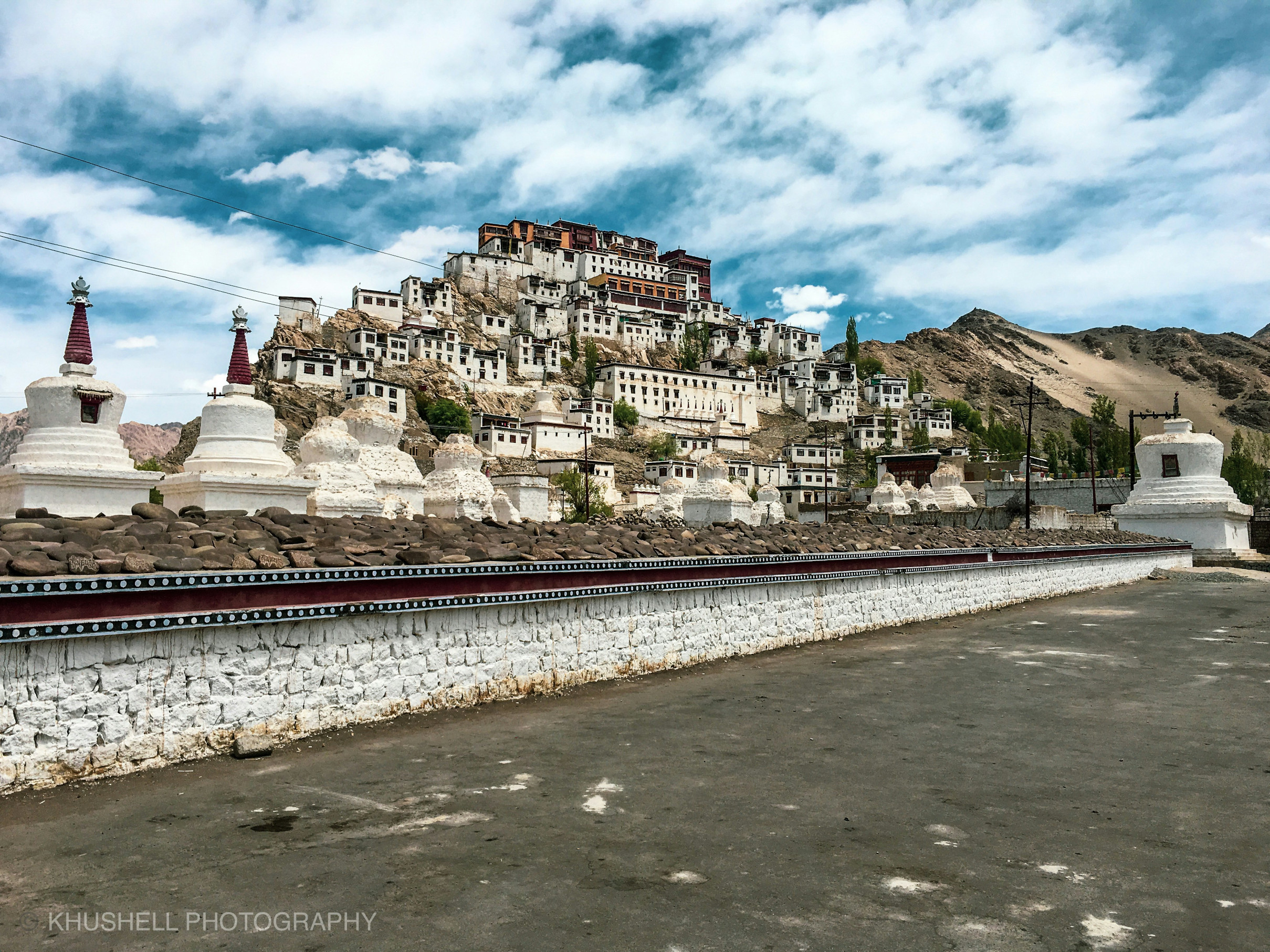1 yr. ago
(E)
Ladakh: A Land of High Peaks and High Hopes
Ladakh, nestled amidst the majestic Himalayas, is a land unlike any other in India. This high-altitude desert region boasts breathtaking landscapes - from snow-capped peaks to stark, multi-hued mountains. Culturally rich, Ladakh is a tapestry woven with Buddhist traditions, Tibetan influences, and a unique Ladakhi identity.
One prominent figure advocating for Ladakh's future is Sonam Wangchuk, an engineer, innovator, and education reformist. He is the founder of the Students' Educational and Cultural Movement of Ladakh (SECMOL), an organization dedicated to improving educational opportunities in the region. Wangchuk, who inspired the character of Phunsukh Wangdu in the Bollywood film "3 Idiots," is known for his innovative, eco-friendly SECMOL campus powered by solar energy.
Ladakh's Aspirations
The people of Ladakh have specific asks for the Indian government. One key demand is the inclusion of Ladakh under the Sixth Schedule of the Indian Constitution. This special status would grant greater autonomy over matters like land rights, cultural preservation, and development projects. Additionally, Ladakhis seek the establishment of a Public Service Commission specific to Ladakh, ensuring fair representation in government jobs. Finally, the call for full statehood reflects a desire for a stronger political voice and a greater say in shaping Ladakh's future.
Challenges on the Path
Granting these requests presents certain challenges. Security concerns, given Ladakh's strategic location bordering China and Pakistan, necessitate careful consideration. The region's small population raises questions about its economic viability as a full state. Additionally, there are concerns about potential ethnic tensions between the Buddhist majority in Leh and the Muslim majority in Kargil.
Potential Benefits of Change
Despite the challenges, there are compelling arguments for accepting Ladakh's asks. The Sixth Schedule could empower Ladakhis to manage their unique environment and cultural heritage more effectively. A Public Service Commission would ensure Ladakhis have a fair shot at government positions, fostering a sense of local ownership. Full statehood could lead to increased investment in infrastructure and development projects tailored to Ladakh's specific needs.
Finding Common Ground
The path forward for Ladakh requires open dialogue and a spirit of compromise. The Indian government must carefully consider the legitimate concerns of Ladakhis while balancing national security considerations. Ladakh, for its part, can showcase its commitment to peaceful coexistence and responsible development.
Sonam Wangchuk's approach is emblematic of this spirit. His innovative educational methods and focus on ecological sustainability offer a blueprint for a future Ladakh that is both progressive and respectful of tradition.
Ladakh's aspirations hold significance not just for the region itself, but for India's commitment to federalism and regional autonomy. Finding a solution that addresses both the needs of the Ladakhi people and the concerns of the Indian government will be a testament to India's democratic strength.
Sonam's work with SECMOL: [https://secmol.org/get-inv...
The Sixth Schedule of the Indian Constitution: [https://www.mea.gov.in/Ima...
Ladakh, nestled amidst the majestic Himalayas, is a land unlike any other in India. This high-altitude desert region boasts breathtaking landscapes - from snow-capped peaks to stark, multi-hued mountains. Culturally rich, Ladakh is a tapestry woven with Buddhist traditions, Tibetan influences, and a unique Ladakhi identity.
One prominent figure advocating for Ladakh's future is Sonam Wangchuk, an engineer, innovator, and education reformist. He is the founder of the Students' Educational and Cultural Movement of Ladakh (SECMOL), an organization dedicated to improving educational opportunities in the region. Wangchuk, who inspired the character of Phunsukh Wangdu in the Bollywood film "3 Idiots," is known for his innovative, eco-friendly SECMOL campus powered by solar energy.
Ladakh's Aspirations
The people of Ladakh have specific asks for the Indian government. One key demand is the inclusion of Ladakh under the Sixth Schedule of the Indian Constitution. This special status would grant greater autonomy over matters like land rights, cultural preservation, and development projects. Additionally, Ladakhis seek the establishment of a Public Service Commission specific to Ladakh, ensuring fair representation in government jobs. Finally, the call for full statehood reflects a desire for a stronger political voice and a greater say in shaping Ladakh's future.
Challenges on the Path
Granting these requests presents certain challenges. Security concerns, given Ladakh's strategic location bordering China and Pakistan, necessitate careful consideration. The region's small population raises questions about its economic viability as a full state. Additionally, there are concerns about potential ethnic tensions between the Buddhist majority in Leh and the Muslim majority in Kargil.
Potential Benefits of Change
Despite the challenges, there are compelling arguments for accepting Ladakh's asks. The Sixth Schedule could empower Ladakhis to manage their unique environment and cultural heritage more effectively. A Public Service Commission would ensure Ladakhis have a fair shot at government positions, fostering a sense of local ownership. Full statehood could lead to increased investment in infrastructure and development projects tailored to Ladakh's specific needs.
Finding Common Ground
The path forward for Ladakh requires open dialogue and a spirit of compromise. The Indian government must carefully consider the legitimate concerns of Ladakhis while balancing national security considerations. Ladakh, for its part, can showcase its commitment to peaceful coexistence and responsible development.
Sonam Wangchuk's approach is emblematic of this spirit. His innovative educational methods and focus on ecological sustainability offer a blueprint for a future Ladakh that is both progressive and respectful of tradition.
Ladakh's aspirations hold significance not just for the region itself, but for India's commitment to federalism and regional autonomy. Finding a solution that addresses both the needs of the Ladakhi people and the concerns of the Indian government will be a testament to India's democratic strength.
Sonam's work with SECMOL: [https://secmol.org/get-inv...
The Sixth Schedule of the Indian Constitution: [https://www.mea.gov.in/Ima...


